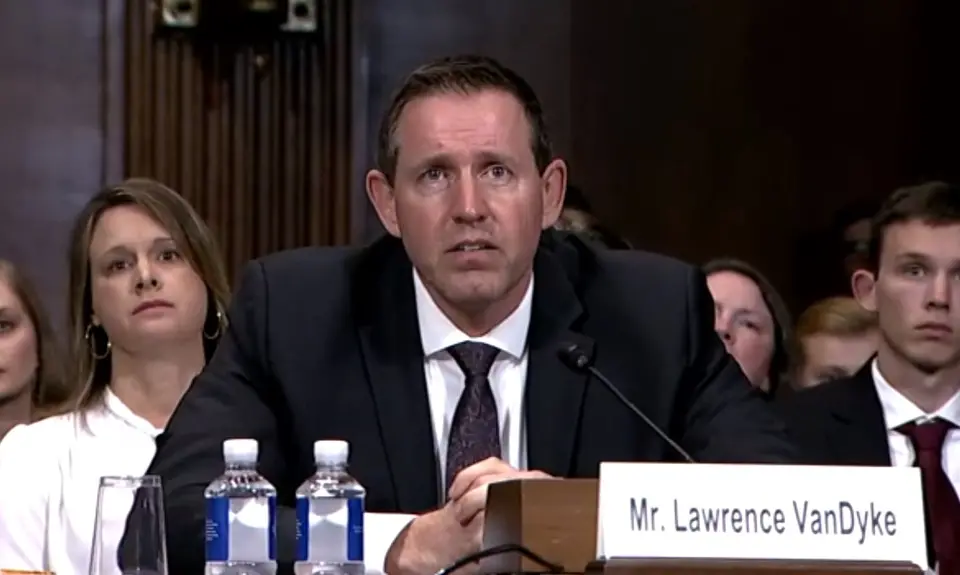“Confirmed Judges, Confirmed Fears” is a blog series documenting the harmful impact of President Trump’s judges on Americans’ rights and liberties. Cases in the series can be found by issue and by judge at this link.
Trump Ninth Circuit Judges Patrick Bumatay, Lawrence VanDyke, Mark Bennett, Ryan Nelson, and Kenneth Lee argued in dissent that the full court should vacate a panel ruling and reinstate a Trump rule and policy that forbade any immigrant entering the US along its southern border except at designated points of entry from requesting asylum. Noting that President Biden had revoked an accompanying Trump proclamation, the full court majority left in place a decision that affirmed a preliminary injunction against the rule in its March 2021 ruling in East Bay Sanctuary Covenant v Biden.
In late November 2018, the Trump Administration issued an “interim final rule” which, when combined with a Presidential proclamation, “strips asylum eligibility from every migrant who crosses into the United States” along its southern border except at designated points of entry. The “staggering” result was to make asylum “entirely unavailable” to the more than 70,000 people who entered the US along that border each year as of 2018 who raise a “credible fear” of torture or persecution in “expedited removal proceedings.”
Immediately after the rule was promulgated, several legal services organizations that “represent current and future asylum-seekers” filed suit in federal court to prevent enforcement of the edict. The district court entered a temporary restraining order against the rule, which both the Ninth Circuit and the Supreme Court refused to stay. In the meantime, proceedings went forward on a motion for a longer-lasting preliminary injunction against the rule, which the district court granted. The Trump DOJ appealed.
In a March 2021 opinion by Judge Richard Paez, a Ninth Circuit panel affirmed the injunction against the rule and the full Ninth Circuit denied rehearing of the case. Although the court noted that the Biden Administration had informed it in February that it had revoked the presidential proclamation making the rule effective, it ruled that the case was not moot since the Biden Administration was still in the process of reviewing the interim final rule itself.
In response to a challenge by the Trump DOJ, Judge Paez explained that the legal services groups were injured by and thus had standing to bring a lawsuit against the rule. In accord with Supreme court precedent, the court ruled, the groups had suffered such injury because the rule had “perceptibly impaired” their ability to perform the work they were “formed to provide” of “assisting migrants seeking asylum” and caused them to “divert their already limited resources” to respond to the additional “obstacles” it imposes on those seeking asylum.
Judge Paez went on to rule that the district court was correct to enter the preliminary injunction because of the “irreparable injury” the rule would cause and, most importantly, because of the “likelihood of the Organizations’ success on the merits” of their complaint against it. The rule was improper, the court concluded, because it is an “arbitrary and capricious interpretation” of federal immigration law. The rule contradicted the “long recognized” principle under the law that a refugee’s method of entering the country was only a “discretionary factor in determining whether the migrant should be granted humanitarian relief,” not an absolute bar. The rule also “runs afoul”, Judge Paez continued, of US “treaty obligations” concerning treatment of those seeking asylum, including the “commitment” to avoid returning individuals to “countries where their lives are threatened.” The full Ninth Circuit denied a request to vacate and reconsider Judge Paez’s opinion.
Trump judges Bennett, Bumatay, Lee, Nelson, and VanDyke dissented from the ruling not to rehear the case, in a harsh dissent by Bumatay. He accused the panel of improperly “stretching organizational standing doctrine” by allowing the legal services groups to sue, claiming that the ruling reflected a “flippant attitude” and that the actions taken by the organizations were simply “fulfilling their mission” and should not give rise to standing. Bumatay also maintained the panel was improperly acting as a “super-legislature” because the “text of the statute” gave then-President Trump “authority” to promulgate the rule, which should be upheld unless and until it is revised by the “political branches.” Judge VanDyke wrote a separate dissent, complaining that the panel had altered its decision during the time that the full court was determining whether to vacate and reconsider it.
Judge Paez explained what was wrong with the dissenters’ arguments. He wrote that the dissent really “takes issue with the entire doctrinal category of ‘organizational standing’,” and showed how the panel opinion carefully applied “well-settled, binding authority” from the Supreme Court and elsewhere to the record evidence that the dissent “ignores.” Paez also showed that the rule was “contrary to plain congressional intent” as well as the “text” of the federal immigration law as properly interpreted. As to VanDyke’s complaint, Judge Paez explained that there was “nothing new” or “improper” about altering an opinion during the process of the full court deciding whether to reconsider it in order to address concerns raised and “strengthen the opinions” of the court, as it has repeatedly done in the past.
As a result of the majority’s opinion, therefore, the harmful Trump rule severely limiting the ability of refugees to apply for asylum remains invalid as the Biden administration carefully reconsiders the rule and immigration policy. If it had been up to Trump judges Bennett, Bumatay, Lee, Nelson, and VanDyke, however, the rule would have been reinstated.
